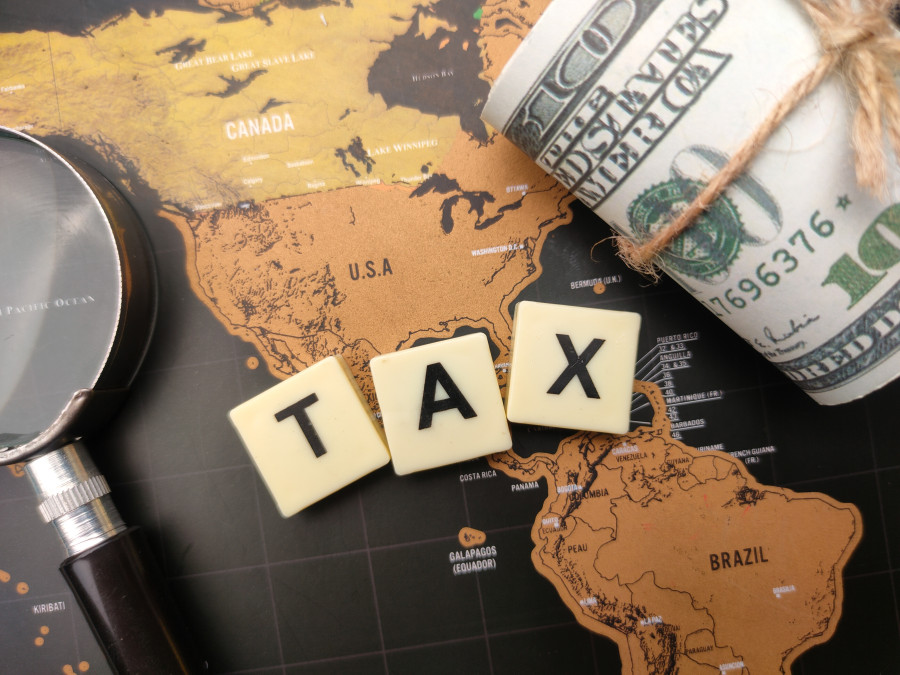Columns
Why the UN resolution on tax matters
Global South countries now get a chance to voice their unique concerns on the world stage.
Nischal Dhungel
In a historic move that could reshape global economic governance, the United Nations recently adopted a resolution to establish a framework convention on tax. This pivotal decision, made in late November last year, represents a shift from the long-standing dominance of the Organization for Economic Cooperation and Development (OECD) in determining international tax rules to a more inclusive platform under the United Nations. The move is particularly momentous for nations in the Global South, including countries like Nigeria and Nepal, that have long sought a more equitable role in global economic decision-making.
For over six decades, the OECD, a consortium of the world's wealthiest nations, has set the agenda for international tax policy. This centralisation of power in the hands of a few has often been criticised for sidelining the interests and perspectives of developing countries. The OECD/G20 Inclusive Framework on Base Erosion and Profit Shifting (BEPS), while a step towards inclusivity, has still faced criticism for not fully addressing the unique challenges faced by lower-income countries. The UN resolution is a decisive break from this trend, aiming for a more balanced approach that includes the diverse needs and capacities of all countries, especially those facing unique economic challenges like Nepal.
The resolution reiterates the importance of international commitments to enhance tax cooperation, combat illicit financial flows, and tackle aggressive tax avoidance and evasion. For countries like Nepal, these enhanced cooperation efforts are critical, considering the billions of dollars lost annually due to these illicit flows, funds that are desperately needed for development and tackling climate change.
The General Assembly Resolution on "Promotion of Inclusive and Effective Tax Cooperation at the United Nations” analyses existing legal instruments and recommendations related to international tax cooperation and evaluates options to enhance its inclusivity and effectiveness. Reflecting a commitment to inclusivity, the resolution calls for wide-ranging consultations with diverse stakeholders. Over 80 written submissions from Member States and other stakeholders were received, underscoring the global community's engagement in shaping the future of international tax cooperation.
For the Global South, this process provides an unprecedented opportunity to voice its unique perspectives and concerns on the global stage. The shift in tax rule decision-making to the UN has profound implications for global economic dynamics. This is crucial, considering that tax policy plays a pivotal role in determining how resources are allocated, affecting everything from public services to foreign investment.
A report by Global Financial Integrity (GFI) sheds light on a critical issue in global economics: The illicit financial flows (IFFs) in 148 developing and emerging market nations arising from trade with advanced economies. IFFs, defined as money earned, transferred, or utilised illegally across borders, pose a significant challenge to equitable and sustainable growth in these nations. Covering the period from 2006 to 2015 and utilising data from the United Nations and the International Monetary Fund, the report emphasises the substantial and ongoing problem of trade-related IFFs. In 2015, South Africa, Nigeria, Turkey, and Hungary, among other countries, emerged as the top nations experiencing illicit outflows by dollar value. Moreover, Mozambique, Malawi, and Zambia, among other countries, faced the highest illicit outflows from their total trade with advanced economies. This report highlights how mis-invoicing not only undermines the financial integrity of the involved nations but also hampers their paths to sustainable development, thereby accentuating the need for robust and equitable global tax governance.
The Tax Justice Network's 2023 State of Tax Justice report cautions that over the next ten years, countries could lose almost $5 trillion in tax revenue. This is due to multinationals and affluent individuals persistently exploiting tax havens to minimise their tax obligations.
A study titled "Development Aid and Illicit Capital Flight: Evidence from Nepal" delves into the intricate relationship between development aid and illicit capital flight in Nepal, a country highly dependent on external financial support. The study reveals a positive correlation between development aid and capital flight. Notably, this correlation is not evident in remittances, another form of foreign exchange inflow, indicating that the factors driving capital flight are not prevalent in remittance flows. The research primarily attributes this correlation to import over-invoicing, providing vital insights into the specific mechanisms of illicit capital movement in the context of development aid in Nepal.
International organisations like Oxfam and advocacy groups like Global Alliance for Tax Justice and Tax Justice Network have been instrumental in pushing for more equitable tax governance. Moreover, the Intergovernmental Group of Twenty-Four on International Monetary Affairs and Development (G-24) coordinates the position of developing countries on monetary and development issues and stands ready to support the process of shaping a new tax paradigm that garners universal support from both affluent and less affluent nations but also holds the potential to significantly impact the lives of the global underprivileged. Their role in advocating for transparency, fighting tax havens, and highlighting the impact of tax evasion on development cannot be overstated. This resolution is a testament to their persistent efforts and underscores the importance of continued engagement from these organisations and groups to ensure that the promises of the resolution are fulfilled.
While the resolution is a significant step forward, it presents challenges and opportunities for countries like Nepal. The process of establishing a new framework for international tax cooperation will be complex, requiring careful negotiation to balance diverse interests. However, it offers an unprecedented opportunity for the Global South to address some of the systemic issues in global taxation, such as the challenges posed by digitalisation and the need for a fair distribution of taxing rights among nations.
The UN resolution to establish a framework convention on tax is not just a procedural change; it represents a fundamental shift towards more democratic and inclusive global tax governance. It is a momentous step in addressing long-standing imbalances in global economic policy-making, offering a beacon of hope for a fairer and more inclusive world economic order. This historic achievement is not just a victory for the Global South; it is a pivotal moment for all who advocate for fairness, transparency, and inclusive governance in the global economy, especially for countries like Nepal, trying to find their footing in an evolving economic landscape.




 16.33°C Kathmandu
16.33°C Kathmandu















